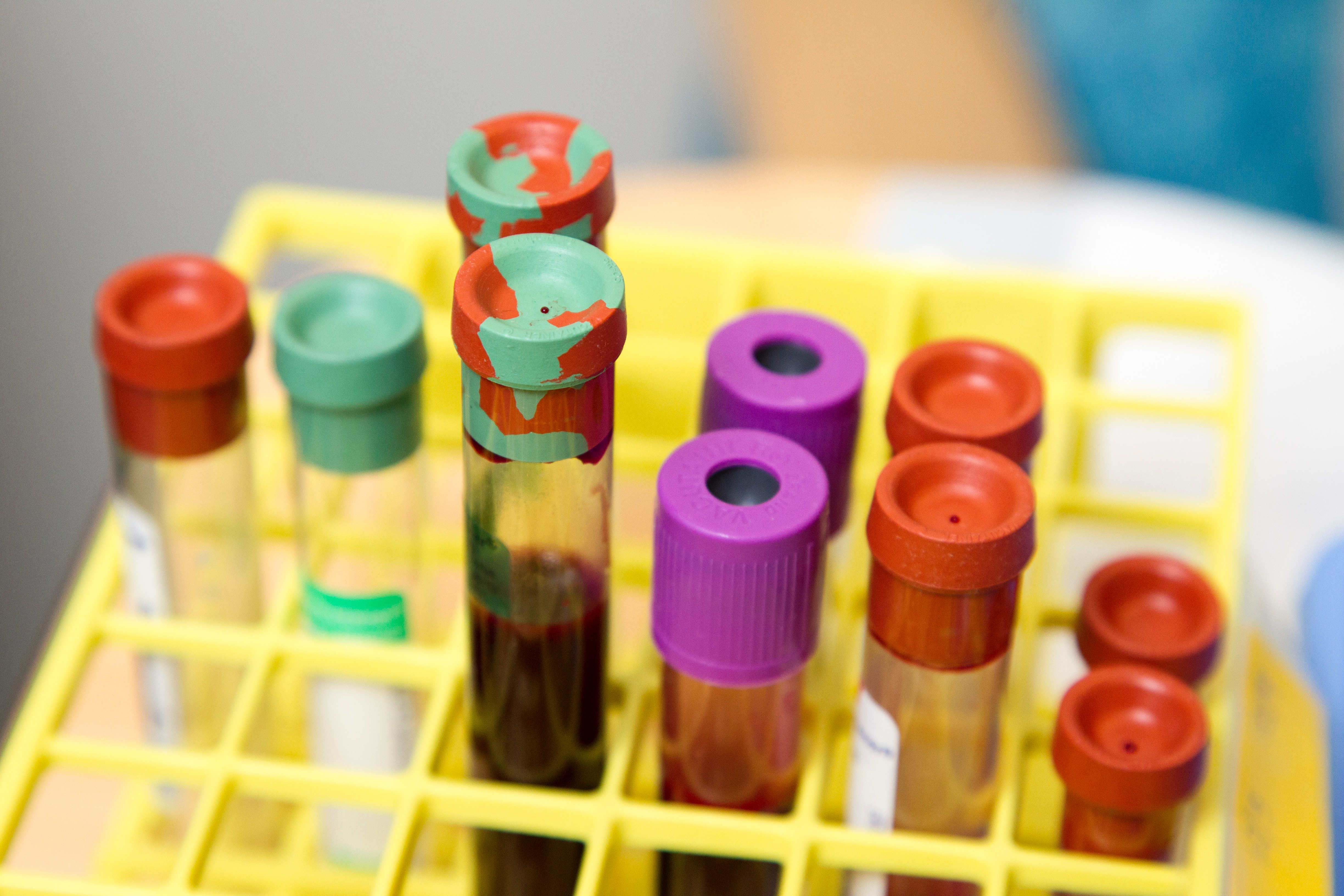
PSA Level Over 100 – Prognosis

It’s been a long time since I’ve been active on this blog. The main reason is that my dad was diagnosed with prostate cancer in September of 2018. It’s turned my word upside down. My priorities had to change. Now I’m i a palce where I’m ready to come back to blogging here at Frank Loves Beans more regularly even though life still feels chaotic a lot of the time. I plan to still blog about my pugs, the curly girl method, and all sorts of things that matter to me. A new thing that matters to me is prostate cancer. I have a list of blog post ideas that I am going to share related to my dad’s prostate cancer journey. This post is the start of those! While this is a difficult topic I know that I started googling things like PSA level 170. PSA blood level over 100. Prostate Cancer PSA over 100. Odds of stage 4 prostate cancer with PSA over 100…etc on day 1. Literally day 1. If you’re finding this post before a diagnosis…please know that I’m not a doctor. This is just one man’s story. But this is our experience.
My dad went to sit down in one of those cloth foldable lawn chairs that can fit into a little carrying bag. It was really old and the material had grown weak. So when he went to sit down, the seat of the chair ripped and caused my dad to fall through and hit the ground. This was only a 18 inch drop or so probably. His legs were sore for a week or so after that but he didn’t think much of it at first. He was 72 years old, it’s not unusual for an elderly person to be sore for a while after an injury. After about a week his back started hurting worse than his leg and he was bad enough that he was walking slowly. He started to think maybe something else was wrong. He had me schedule him a doctor’s appointment. By the time the doctor’s appointment happened (a couple days later) the pain seemed to primarily be in his shoulder. The doctor ordered an X-ray of his shoulder and it came back normal. The pain persisted so we went back to the doctor. She suggested physical therapy this time, but asked if he would mind getting some blood work also. Something about hepatitis C should be tested for in every one his age. He agreed to the blood work without really thinking twice about it.
The next day the doctor’s office called to say his blood work came back showing a PSA of 170 and he needed to see a urologist, they got us a referral.
I had never heard of a PSA. So I google PSA 170. The results brought up prostate cancer forums. None specifically talking about having a PSA of 170 but plenty talking about how a PSA of 20 was ‘so high’. So I started to realize he probably had prostate cancer. I google prostate cancer and see mentions of how prostate cancer has great survival rates compared to most cancers. But I see other posts in this forum where others are talking about having a PSA of 6 and getting a prostate cancer diagnosis. And one where someone has an initial PSA of 24 and others commenting that they can’t believe it was so high before diagosis. I start to realize that having an initial PSA of 170 is really really high. Sky high. Browsing the forum I couldn’t even find references to a PSA of over 100. That’s when I started to realize we aren’t just talking about prostate cancer we’re talking about late stage prostate cancer, most likely.
I find a study saying men with a PSA over 100 have significantly worse 5 and 10 year survival rates than men with lower PSA’s. It also mentions that in their study only about 4% of men had an initial PSA of over 100 – so yes it is quite rare. I also found another study that showed that while only 28% of men in the study had a PSA of over 100, a of them who had a PSA over 100 ha multiple skeletal metastases. In fact., 95.5% who had a PSA of over 200 had at least one bone metastases.
So that last study is really what made me recognize that yes, with all likelihood, my dad had stage 4 prostate cancer – almost certainly at least 2 different metastisis.
Eventually we discovered that he did have stage 4 prostate cancer. He had tumors/metastases in multiple spots on both legs, multiple places in his spine, ribs on both sides, sternum, pelvis, two spots on his right arm bone, and one shoulder. That’s 13 places. The official language on his bone scan results are copied elow.
“Normal soft tissue uptake and excretion of radiotracer. The bladder appears
distended.
There are numerous foci of increased activity within the axial and
appendicular skeleton. This appears to involve bilateral ribs, sternum, right
scapula, mid and distal right humerus, thoracic and lumbar vertebral bodies,
pelvis, proximal and distal left femur and proximal/mid right femur. Findings
are highly suspicious for metastatic disease. Moderate focus of activity
within the left AC joint. Uncertain if this is degenerative/posttraumatic
given history versus neoplastic.”
I can’t turn this blog post into telling the whole prostate cancer story because it would be a book not a bog post. I hate to leave this on such a difficult note though. So I’ll say that as I type this on te last ay of January 2020, we are 16+ months out from my dad’s official diagnosis, and 17 months out from when we first got his PSA results and he is still here. I’ll expand on this in later blog posts, but he actually is a lot “worse” than most cases of prostate cancer with an initial PSA over 100 because he has two types of prostate cancer. He has the most common type of prostate cancer which has the technical name of adenocarcinoma. That type of prostate cancer makes up 99% of all prostate cancer and it is the type of prostate cancer detected via PSA. However my dad also has neuroendocrine prostate cancer aka small cell prostate cancer which does NOT increase the PSA. So typically men who have small cell prostate cancer have a low PSA compared to the severity of their disease. So my dad had very late stage “common” prostate cancer AND small cell prostate cancer…and he has not taken the most recommended courses of treatment for his diagnosis and yet he is still here 16 months later and he isn’t in a hospital bed yet. It’s been a long year and a half but I think he is living proof that even “really severe” prostate cancer is far less aggressive than most other types of cancer. So if you or a loved one just got a PSA result of over 100 please know you probably have more time than you fear. You may even have several years.
I also want to say that the beginning is extremely hard. It feels impossible to accept or cope with for a while. It has been a difficult journey for us and I know the hardest part is yet to come. But somehow we have found a new normal. We have found coping methods. It’s not just waiting around on death. There’s “real life” in the midst of it all. My dad is dying of terminal prostate cancer but until that last day comes, he’s finding a way through. He is living while also slowly dying. And as his daughter, I’m finding a way through and facing this reality even though it felt like too much to cope with at first. Somehow it becomes possible to face it. We really do find a way to be strong when it’s the only choice.


Beautiful documentary for me . My dad was just diagnosed with > 100 PSA.
Sorry to hear that. My dad is now 2 years and 5 months or so past his initial diagnosis and is still with us. Still has never done chemo. So to short of sum it up, he’s been getting hormone shots to try to keep his body from making testosterone since the beginning (and still gets those). The first 9 month or so, he was on a medication called casodex, a hormone medication, that worked well, got his PSA down to 12 at its lowest point, but then quit working around 9 months in. So they stopped that medication, and a a couple of months later he started a new medication that was somewhat similar in that it somehow works with your hormones, but this one was specifically for men who Casodex no longer works for. At first they thought the Zytiga wasn’t working, so after 3 months they took him off it. Then his scans were stable for the following 3 months, so they thought the Zytiga must have worked, but started working later than normal? So they put him back on it for 3 more months, but then decided (again) that it wasn’t working.
So that got us up to about Dec 2019. For 6 months in early 2020 he did once-monthly IV radiation infusions called Xofiogo. This is said to not be a life-extending medication, but it does reduce the size of bone mets and can reduce bone pain as a result of that.
He didn’t have any scans from like Nov 2019 until Dec 2020, 13 months. But when he got scans back in December, they were stable with the nov 2019 scans.
It blew us away because he’s not done chemo, not done any additional hormone pills…all he’s been on is the shot to reduce his testosterone (But we were told his cancer was growing even without testosterone in the past so that should only help a little), and then the Iv radiation/xofigo influsions which we were also told don’t really fight cancer and just reliee pain. Yet..no spread, no growth of his cancer for a whole year.
How is that possible? I really don’t know. The oncologist said he must have had an unusually positive reaction tot he xofigo somehow. I don’t really understand why, but he said after seeing that he responded so well to the xofio, that once his cancer does start to grow/spread again, that the doc now thinks he is a good candidate to try some other type of hormone medication that he wasn’t willing to offer him before as he thought it was no use.
My sister and others feel that his stability for the last year or so must be God. I am not religious. It seems to me like my dad’s cancer has basically “taken naps” or “hit pause” a few times for no good reason. It’s very strange.
Anyway…some of his experience at this point may be unusually lucky, I’m not really sure what is typical. But I absolutely think most people with a type 4 prostate cancer diagnosis will get at least a couple years, likely more if they do all the recommended treatments. I have read that cancer survival statistics across all cancers are often more grim than the reality is at the current moment. From what I read, it takes a fair amount of research before they are allowed to publish statistics like that, and the research requires time so the numbers you may see published right now could be from 2005 or something, and so they’re never really up to date with current cancer treatments and the survival rates with those.
Anyway, wishing your dad the best!
Thank you so much for your post. My dad was just diagnosed with prostate cancer. His psa is 100 and according to the nurse his scans show enlarged lymph node in his abdomen and a “spot” on his rib. He has an appointment with the oncologist today. I just don’t know what to expect, but your words brought me some comfort.
Sorry that your dad has this crap :(. I assume by calling it a “spot” they aren’t sure if it is a bone met or if it could be something else. For example, they needed to do an additional scan of my dad’s shoulder early on because they could tell there was “something” on a scan but they couldn’t tell if it was a met or if it could be something that was showing up as a result of an injury he had previously.
If it is a met, it seems (comparatively) really positive that they caught it while he only has 1. I don’t know, but I would wonder if with just 1 bone met if they could really intensely target it and force it into submission. Where when someone has a lot of mets like my dad did, they can’t attack them all very intensely as it would poison the person.
Thank you for writing this. It always seems less scary when you can find others who are going through similar things. My husband was just diagnosed with prostate cancer. His PSA was 27 they are scanning next week to see if it’s spread.
Thanks for posting the information about your father and how you have coped with it. My PSA scores are in the 70s-80s and my biopsy confirmed cancer. Unknown if it has spread, however, the bone scan and c t scan did not detect any. I am pending an MRI. As you know, this whole experience can be overwhelming, just when you get good news, another shoe drops. Very hard to
deal with. Hope you and your father are well.
My husband has a PSA of 200. The test was only done for a life insurance policy (he is 65 and we were just married 12 months ago). He seems healthy, though tired, and he’s NEVER had a PSA test and he doesn’t want to call a urologist. He’s not been to see a doctor in at least 10 years. Any advice?
Thanks for your comments. It is comforting to know we are not alone. My husband’s PSA is 120 and he is awaiting a bone scan. It is a roller coaster ride of hope, panic and information gathering. Knowing that others are living well while on this journey helps.